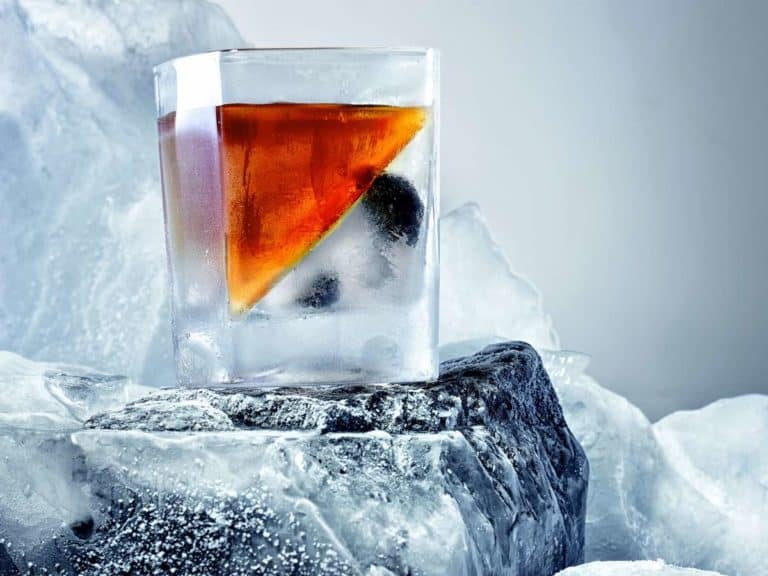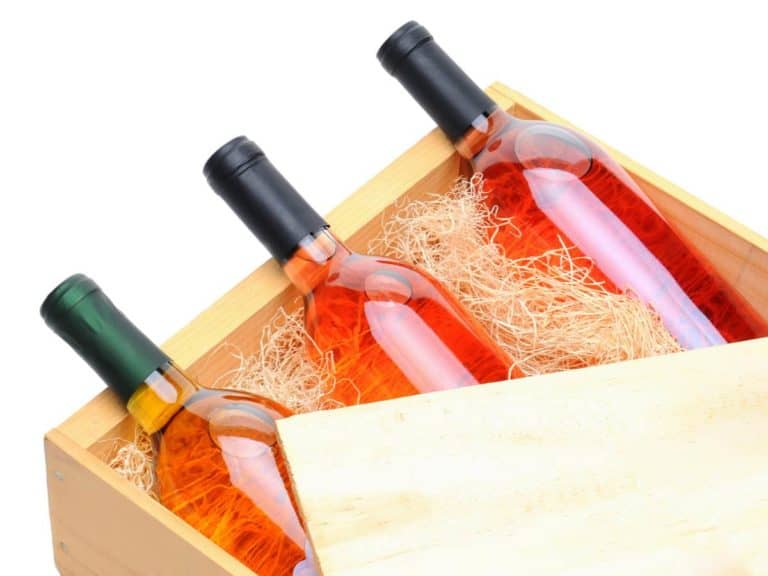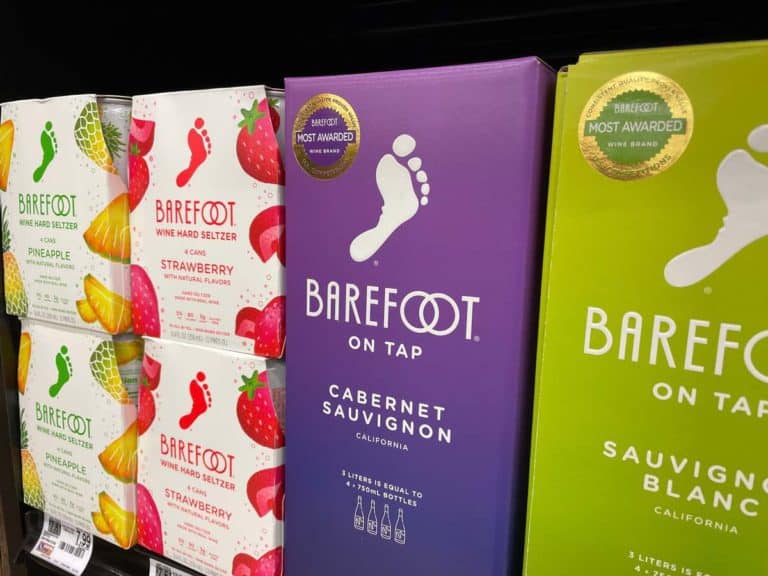How Long Does Whiskey Last in a Decanter?
Unopened whiskies can last for many years without becoming stale. The oldest known bottled whiskey is roughly over two hundred and fifty years old. However, whisky’s virtually unlimited lifespan does not apply to opened whiskey bottles, especially those poured into a decanter.
Whiskey in a decanter lasts between two months and three years, depending on the amount of alcohol in the decanter and the effectiveness of the decanter seal. Surrounding storage conditions like temperature, light, and humidity can also affect the lifespan of whiskey poured in a decanter.
The rest of the article will explain in greater detail how long your whiskey can last and whether there is such a thing as whiskey expiring in a decanter. It will also address what factors you need to look at to extend the life of your decanted whiskey.
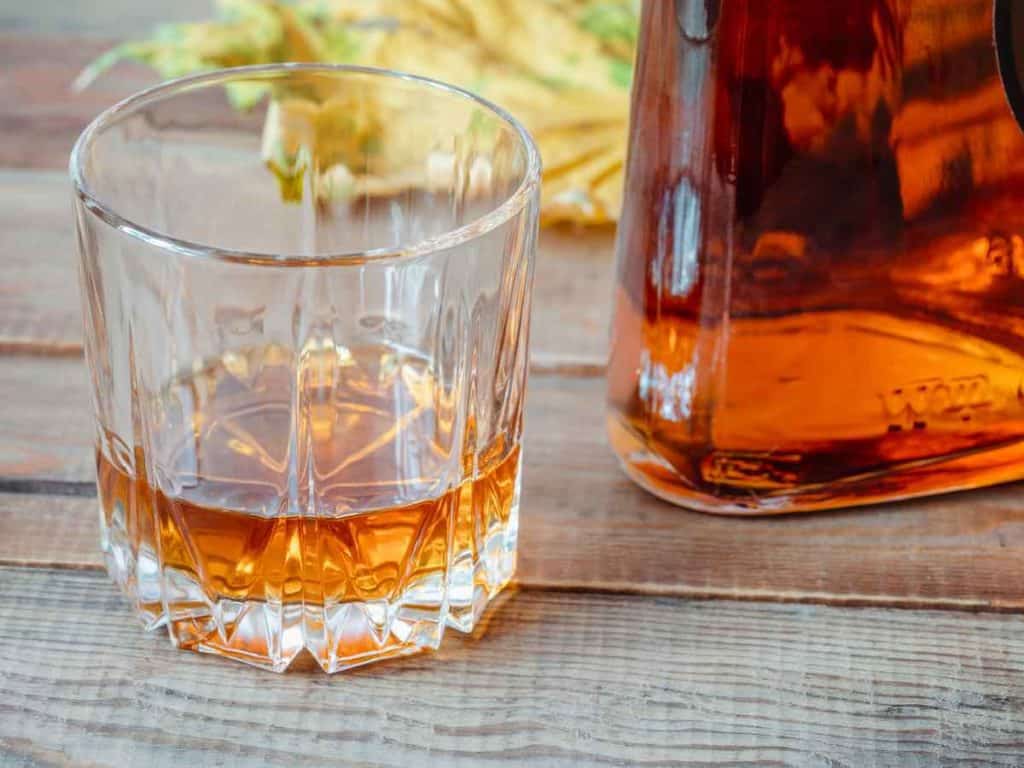
5 Factors Affecting How Long Whiskey Last in Decanter
The lifespan of your decanted whiskey depends on many factors. Some include how much whiskey you have in the decanter, how often you open it, and how long you leave the whiskey in there.
The type and features of the decanter, where you place it, and the surrounding environmental conditions also play a role in the quality and durability of your decanted whiskey.
Let’s look at each of these factors in greater detail:
1. The Amount of Whiskey in the Decanter
The amount of whiskey in the decanter determines how much airspace you can have in your decanter. A decanter full of whiskey has less airspace than a quarter-full one.
Air is the number one enemy of an opened bottle of whiskey. It can lead to an altered taste and aroma profile. This means that all other factors held constant, a full decanter will last longer than that with much less whiskey (and more air).
Here are a few key points on how much time you have to drink your decanted whiskey based on the amount left:
- A decanter with more than half the amount of whiskey can last between two and three years.
- A decanter with between a quarter and half the amount of whiskey has six to eight months.
- A decanter less than a quarter-full can last for two to three months.
2. How Many Times You Open the Decanter
The more times you open your decanter to serve your whiskey, the more you expose the decanted whiskey to air and its effects. Once you have poured out the whiskey, the air of the same quantity moves into the decanter to replace the amount poured.
We shall cover the effects of air on decanted whiskey in more detail later in this article.
3. How Long You Leave the Whiskey in the Decanter
Contrary to common belief, whiskey doesn’t get better with time. The opposite is actually true. Once you open a whiskey bottle and pour it into a decanter, it gets exposed to many environmental elements, kickstarting a slow deterioration process.
If you drink it immediately, you do not have to worry about the change in scent and taste. But if you keep it in the decanter for months, prepare for a mellow flavor and aroma profile.
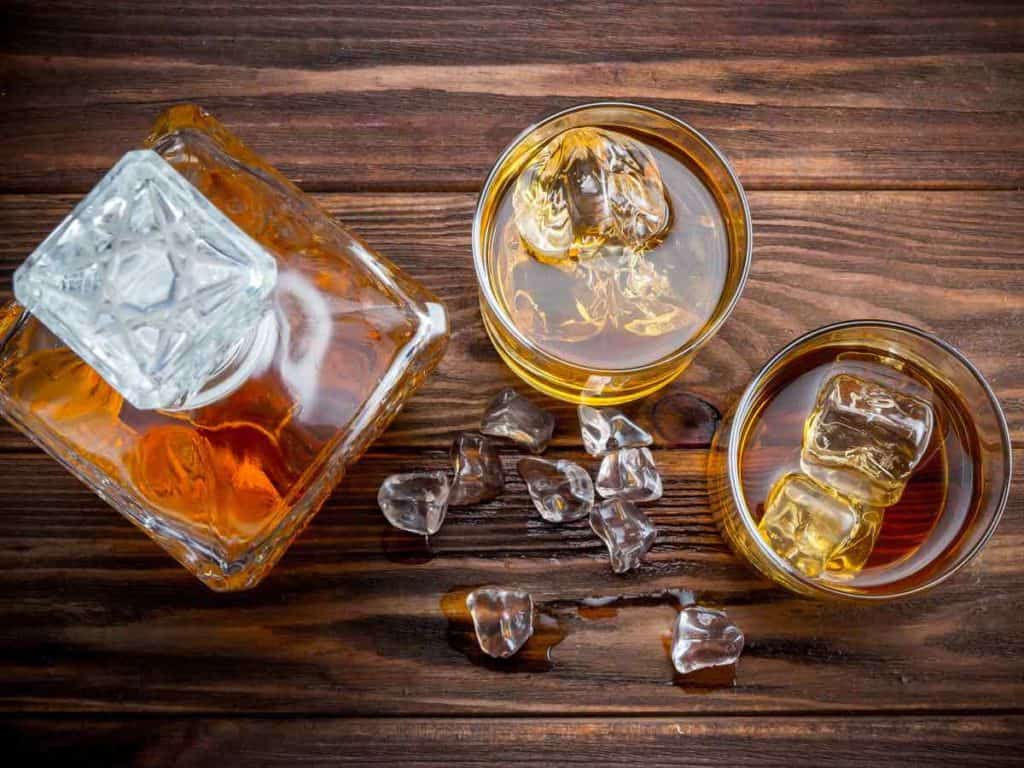
4. The Type of Decanter
A decanter with an airtight seal can make your whiskey last for a minimum of two years. The airtight seal prevents air from moving in and out of the decanter between servings. Also, lead crystal decanters can leach lead into your whisky over time, thus affecting its quality.
5. Position of Storage and Surrounding Conditions
Where and how you position your whiskey decanter can alter the lifespan of your whiskey. Cool areas far away from direct sunlight ensure that your whiskey keeps its character for longer, even when the decanter is half-full.
However, a full whiskey decanter will not last up to three years with its flavor profile intact if it’s constantly exposed to harsh environmental conditions like direct sunlight and extreme temperatures.
Top 4 Factors Cause Whiskey Decanter Go Bad in Decanter
Whiskey in a decanter goes bad in the sense that it changes its original flavor and aroma as time passes. The liquor’s rich flavor becomes smooth and fruity, then flat and dull. It eventually becomes rancid after exposure to air as the amount of liquor reduces considerably in the decanter.
Whiskey in a decanter goes stale due to four reasons:
- Exposure to air
- Exposure to direct sunlight
- Fluctuating temperatures
- Humidity
Let’s review each of these in greater detail.
Air
Unlike wine, whiskey does not need to aerate to bring out its flavors and aroma. Instead, exposing your whiskey to air over long periods causes it to deteriorate slowly. This is precisely why whiskey in unopened bottles lasts longer.
Your decanted whiskey comes into contact with air in avoidable and unavoidable ways
One unavoidable way your whiskey interacts with air is as you pour it from your decanter into a glass when serving. The surrounding air enters the decanter, replacing the whiskey poured into the glass. The airspace created reacts with compounds in the alcohol and changes the whiskey’s taste profile and character.
In addition, the airspace allows room for the flavorful alcohol molecules in the whiskey to dissipate into the space above the liquid.
The dissipated molecules then escape into the air when you open the decanter to serve, leading to a change in flavor. For this reason, a full or almost filled whiskey decanter stands a better chance of retaining its taste because there is less air space.
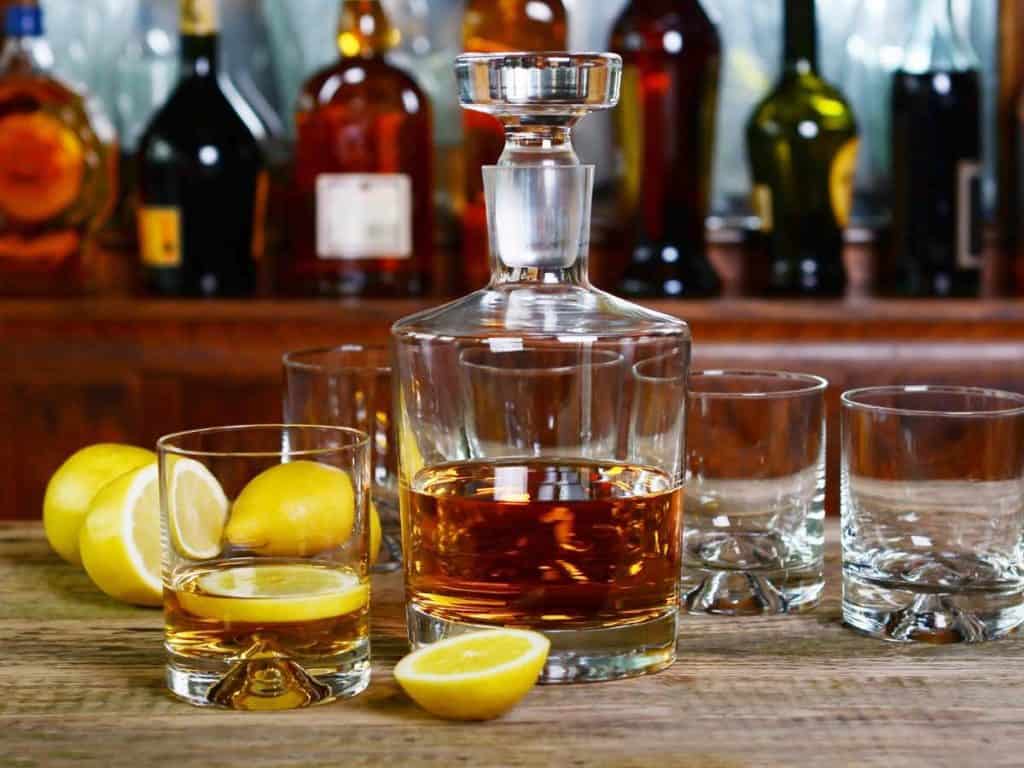
Decanted whiskey also comes into contact with air when you do not have an airtight decanter seal. Therefore, keeping the seal tight is crucial to maintaining the quality of your liquor. Few decanters have airtight seals, so you may need to twist your stopper once in a while to ensure that it has not come loose.
To reduce or prevent the effect of air on your decanted whiskey, try:
- Using an appropriately sized decanter that fits all your liquor. The less the airspace, the better.
- Using a decanter to hold enough whiskey for a few days at most. You can always refill when finished.
- Buying a decanter with an impenetrable seal. You might not get one with a truly airtight seal, but considering the seal tightness when shopping goes a long way.
Direct Sunlight
According to the Scotch Whisky Association, you should always keep your scotch whisky away from direct sunlight. This rule applies to all whiskies and many other types of alcohol. Direct sunlight breaks down the esters and flavor compounds, effectively changing your whiskey’s color, taste, and scent.
The color becomes paler, while flavors and aromas become less intense. There are a few reports that whiskey exposed to direct sunlight tastes like paint thinner, rubber, plastic, or sand. You do not want your whiskey tasting like any of these so, keep your decanter away from sunlight.
Direct sunlight also negatively affects the temperature of the whiskey in the decanter. Nobody wants warm whiskey.
Temperature Fluctuations
Oxidation of whiskey occurs slowly because of the high alcohol level of over 40% in volume and little to no tannins. Nonetheless, the rate of oxidation can increase because of increased temperatures, making your whiskey expire faster than expected.
High temperatures also cause the whiskey molecules to expand, leading to increased evaporation in your decanter. The flavorful compounds escape, leading to a less intensive palate over time. You may also notice you have less alcohol in your decanter, although this may take some time.
The heated decanter and whiskey may reduce the effectiveness of the airtight seal, leading to the free movement of air in and out of the decanter. In addition, cold temperatures tone down the scent and flavor of your decanted whiskey.
A bounce between these extremes can change the composition of the whiskey, causing it to deteriorate faster.
To avoid all these problems, place your decanter in a room with controlled temperature and keep the temperatures between 59°F(15°C) and 68°F(20°C). Also, store your decanted whiskey in an area away from direct sunlight.
Humidity
A room with high humidity causes alcohol to evaporate faster. It can also give your whiskey a smoother or even flatter taste. A well-air-conditioned room should help keep your humidity levels above board. For the best results, keep humidity levels between 50% and 70%.

How to Tell if Whiskey Has Gone Bad
You can tell your decanted whiskey has gone bad when you open it; it looks and smells different. But do not throw it just yet! Taste a small amount to decide if it is still okay.
A change of taste to a smooth, sweet, or mellow profile means your whiskey is okay, and you should not discard it. But if it smells foul and tastes sour, rubbery, or like plastic, it is time to throw it away.
How to Make Your Whiskey Last Longer in a Decanter
It is not all doom and gloom for decanted whiskey. There are many things you can do to extend the life of your decanted whiskey.
Here are a few:
- Choose the correct size of a decanter. The right size will fit your entire whiskey, leaving a little airspace between the liquor and the decanter.
- Transfer your whiskey to a small decanter if less than half-full.
- Pour what you can consume in one or two sittings into the decanter. The less time the whiskey spends in the decanter, the less time it has to undergo oxidation or evaporation, thus keeping its character and flavor longer.
- Choose a lead-free decanter. A lead-free decanter will prevent leaching into your whiskey.
- Ensure you have an airtight decanter seal. An airtight seal prevents air movement into your decanter, thereby reducing oxidation. It will also prevent the loss of flavor compounds through dissipation. Twist your decanter stopper every so often to ensure it has not gotten loose.
- Store your decanter in a cool and dark place with controlled temperatures. A liquor cabinet or a cupboard is an excellent place to store your decanter.
- Keep the decanted whiskey away from direct sunlight. Sunlight rays break down the alcohol and change your whiskey’s flavor, eventually resulting in a sour and undrinkable liquid.
- Avoid storing your decanter in highly humid areas.
Final Thoughts on Decanting Whiskey
The lifetime of your decanted whiskey ranges between two months and three years, depending on many factors, e.g., the amount of whiskey left in the decanter, how often you open it, and environmental conditions, such as light, temperature, and humidity.
As we have mentioned, air plays a vital role in causing your whiskey to expire faster. Thus, it’s crucial to store the whiskey in an airtight decanter and transfer it into a small-sized decanter to reduce the airspace. You should also keep it in a dark place away from direct sunlight, like in a liquor cabinet or cupboard.
